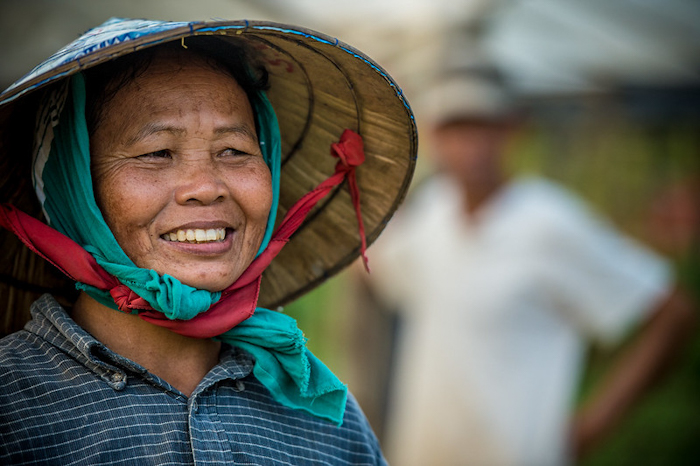- (-) Remove Regional filter Regional
GMS Contents
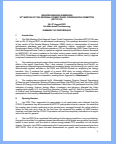
28th Meeting of the Regional Power Trade Coordination Committee (RPTCC-28)
The 28th Meeting of the Regional Power Trade Coordination Committee (RPTCC-28) was held on 26ꟷ27 August 2021 via web-based conferencing.
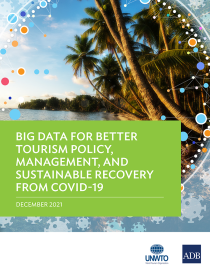
Big Data for Better Tourism Policy, Management, and Sustainable Recovery from COVID-19
This joint publication explores how big data and digitalization can support sustainable tourism development and help revitalize and reshape the sector as it emerges from the pandemic.
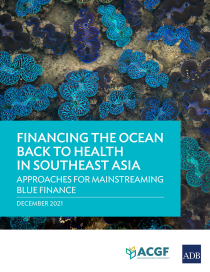
Financing the Ocean Back to Health in Southeast Asia: Approaches for Mainstreaming Blue Finance
This publication identifies investment approaches, opportunities, and finance mechanisms in Southeast Asia that can promote and catalyze funds for a sustainable ocean economy.
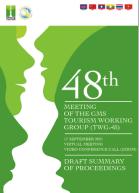
48th Meeting of the GMS Tourism Working Group (TWG-48)
The Government of Thailand with assistance of the Mekong Tourism Coordinating Office (MTCO) virtually convened the 48th Meeting of the Greater Mekong Subregion (GMS) Tourism Working Group (TWG-48) on 17 September 2021. The meeting was attended by representatives of the National Tourism Organizations (NTOs) of the six GMS countries—Cambodia, the People’s Republic of China, Lao People's Democratic Republic, Myanmar, Thailand, and Viet Nam—MTCO, the Asian Development Bank (ADB), World Bank, and other GMS development partners.
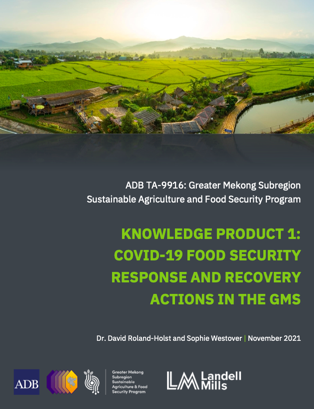
COVID-19 Food Security Response and Recovery Actions in the GMS
COVID-19 represents an ongoing global threat to public health, but it has been especially disruptive to agri-food supply chains and smallholder livelihoods that are dependent upon them.

Photo by ADB
GMS Sustainable Agriculture and Food Security Program and GMS Countries Reach Agreement in Principle for First 6 Demonstration Sites
Demonstrations or pilot farms were implemented in large scale in the Greater Mekong Subregion (GMS) during the Core Agriculture Support Program (CASP) and will continue to form an important part in the GMS Sustainable Agriculture and Food Security Program (SAFSP). At least 12 demos will be set up across the subregion. These demos will offer important learning opportunities for target groups, especially the farmers, and practical results will provide feedback for policy making process.

Photo by ADB
Young People are Encouraged to More Actively Engage in GMS Agri-food Value Chains
The ageing agricultural labor force in most of GMS countries is causing significant obstacles for the development of agro production activities, not only in productivity but also in innovation. Developing or applying knowledge-based and innovative aspects such as climate smart agriculture, digitalization, block chain technologies and other innovations is crucial for the sector to become more sustainable and competitive. Youth in the region is the generation to continue to work in this essential field, and they play a pivotal role in transforming agri-food systems.
ADB Encourages GMS Countries to Propose Investment Projects to Capitalize on the Implementation of the GMS Sustainable Agriculture and Food Security Program
As a technical assistance (TA) program, the Greater Mekong Subregion (GMS) Sustainable Agriculture and Food Security Program (SAFSP) itself will not satisfy the vast needs of some GMS countries for infrastructure and facilities. The Asian Development Bank (ADB) therefore recommends each GMS Agriculture ministry to capitalize on this TA, together with other efforts, to come up with investment projects. Mr.

Photo by ADB
Modern GMS Agri-food Sectors Need Further Works on Traceability and Digital Technology
Keeping accurate and immutable records is the bedrock for creating transparency and trust in food products’ origin, safety and quality. Record keeping in small & medium agribusinesses in the GMS is done mostly on paper, which is difficult to access across the supply chain. Reporting on a study on organic coffee at the 18th WGA Annual meeting, Dr. Suporn from the National Science and Technology Development Agency (NSTDA) of Thailand, said that digital technology for e-traceability enabled chain actors to share data in a digital and standardized manner for the first time.


